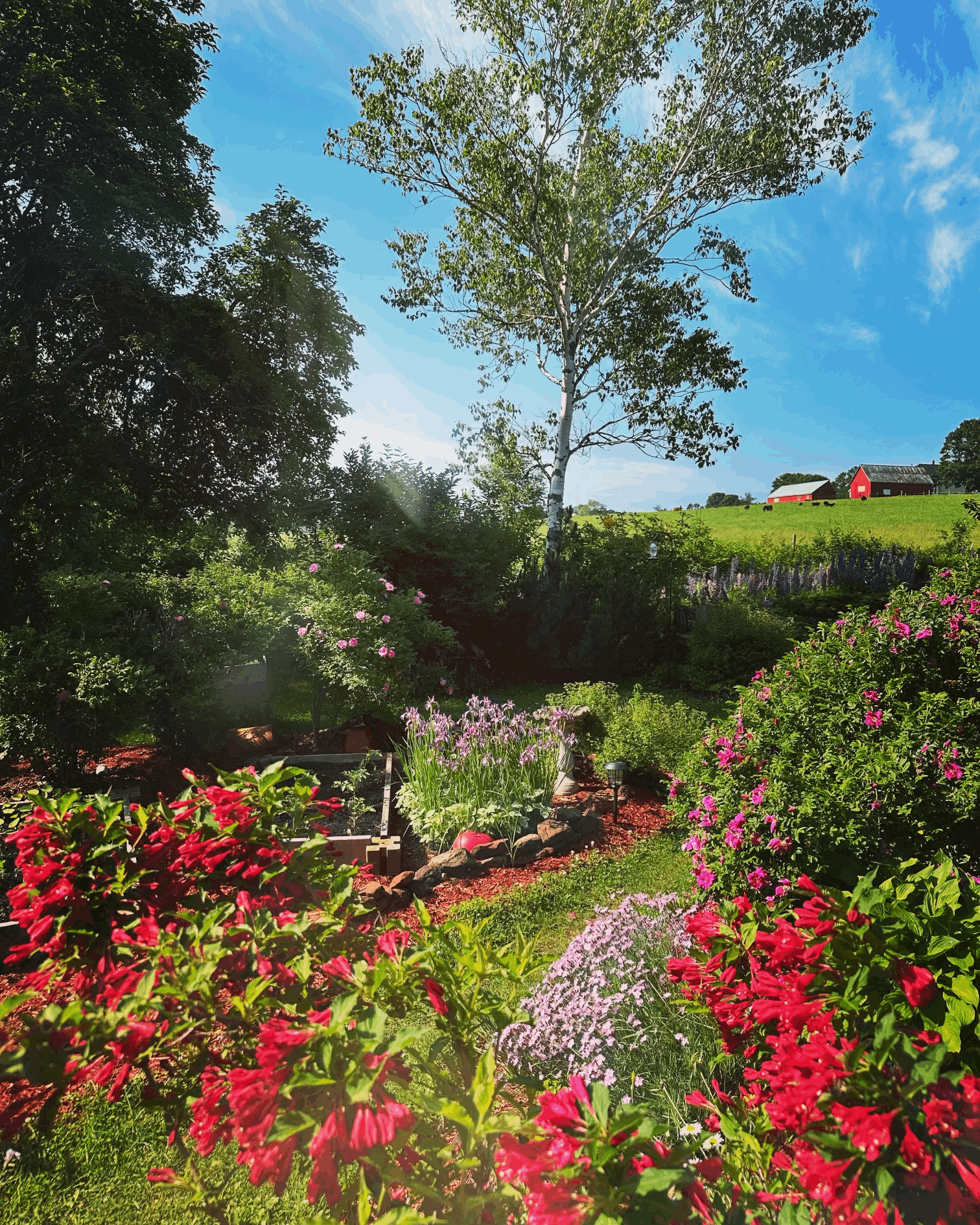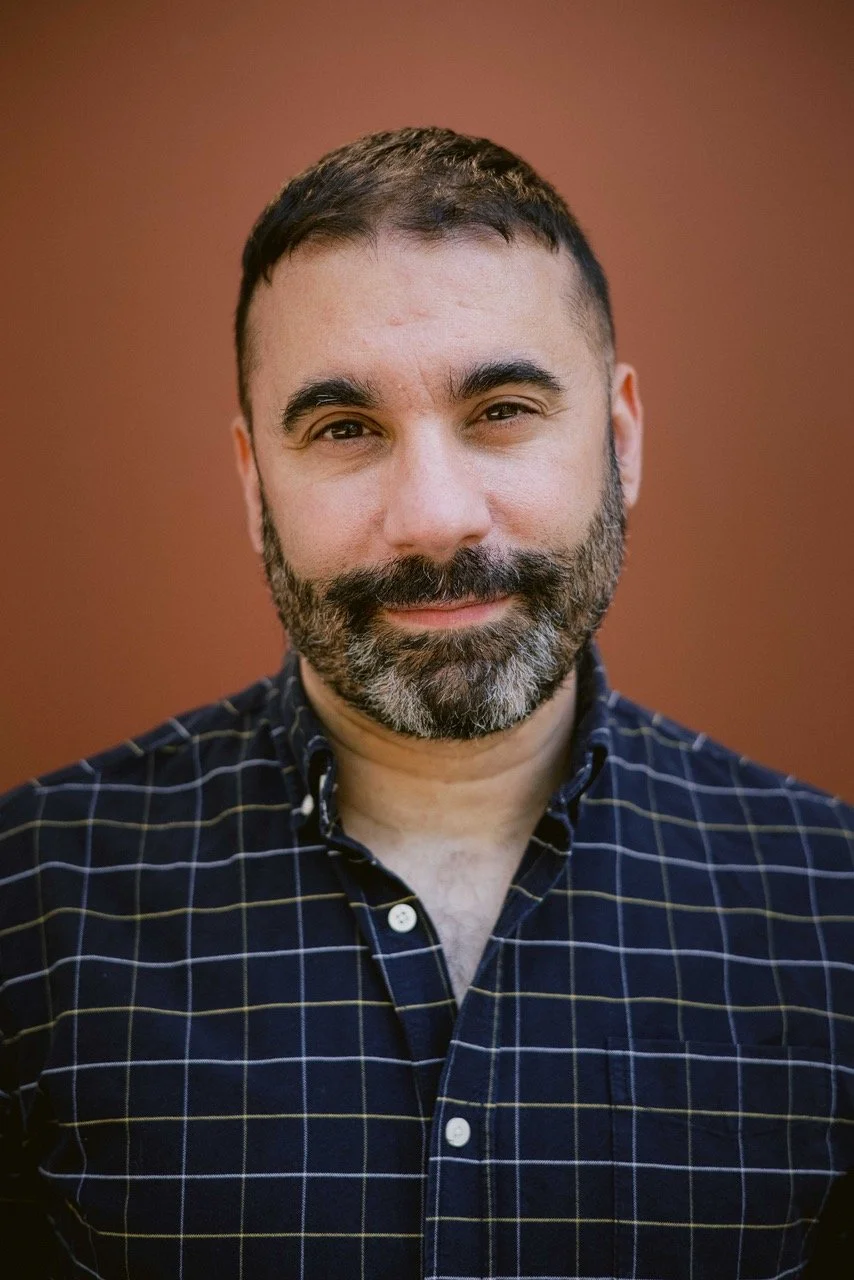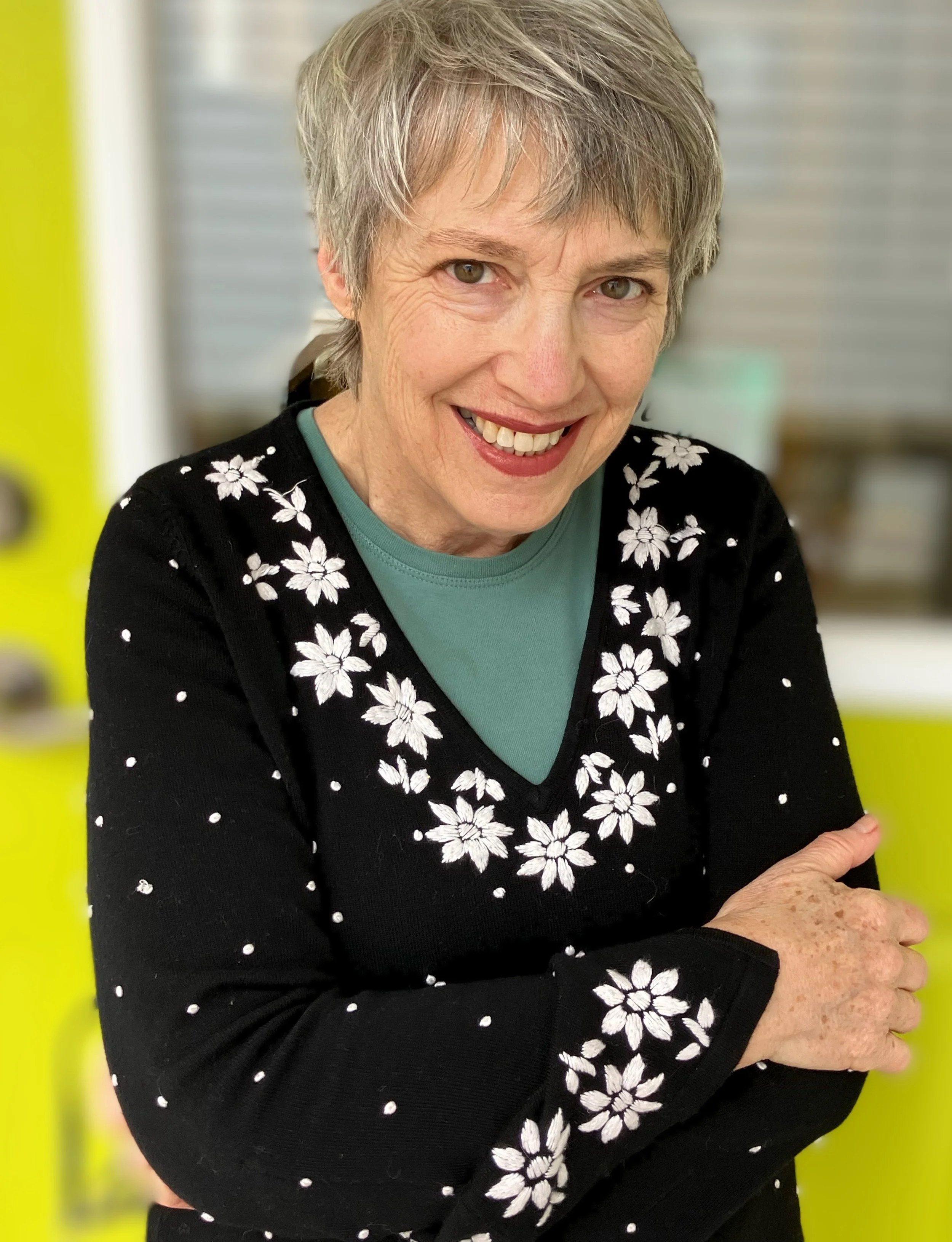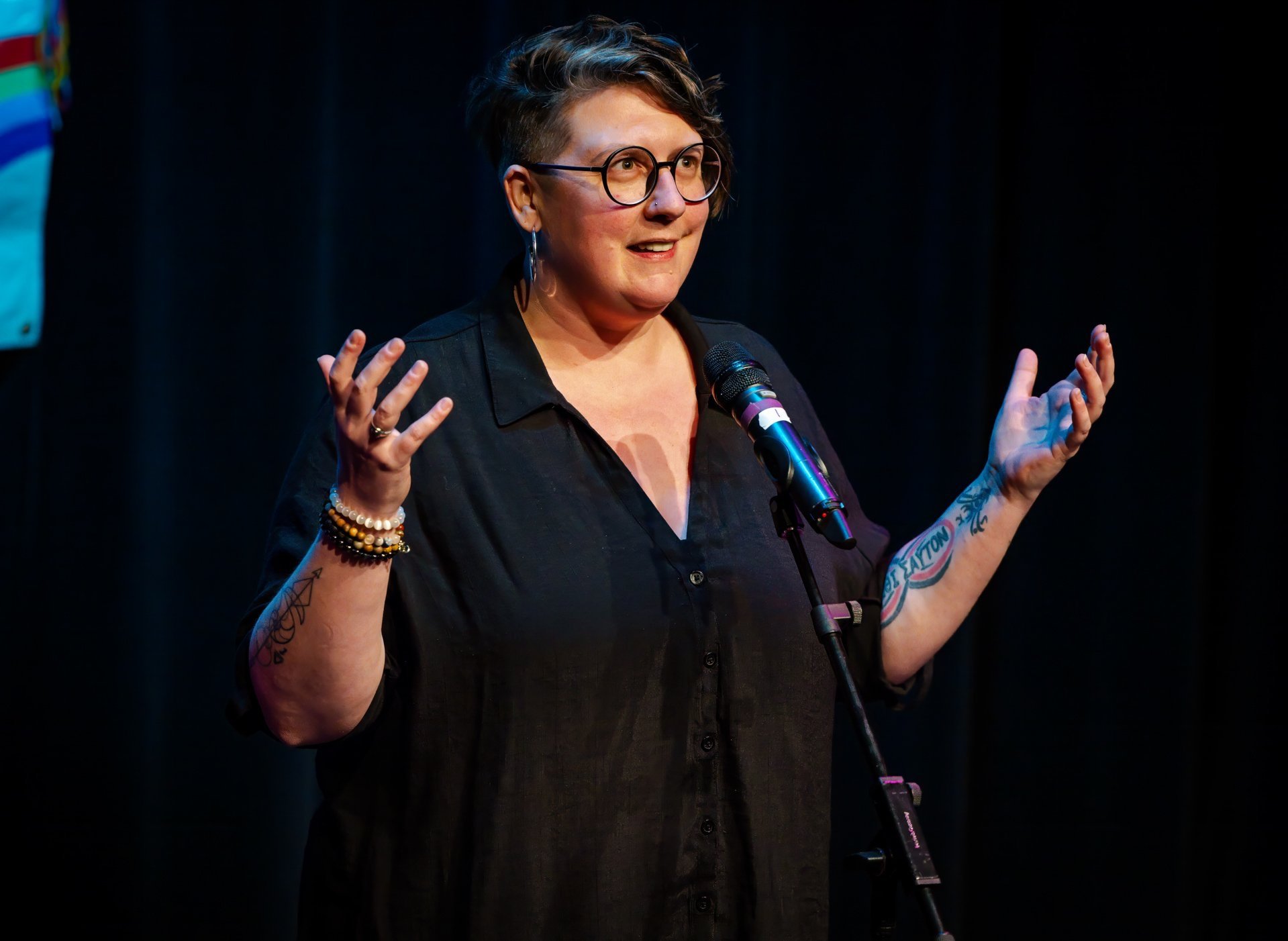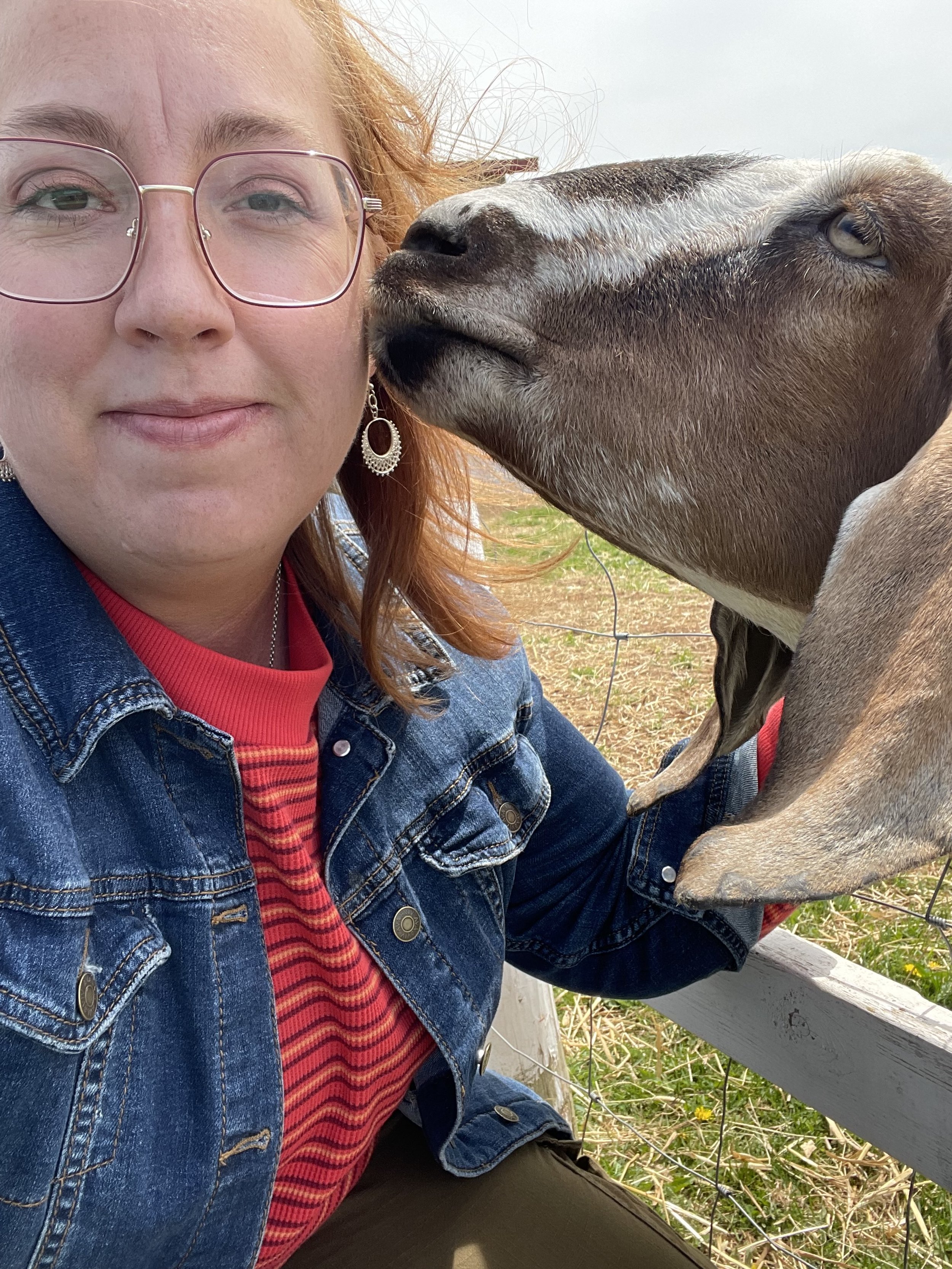Tell us a bit about the project you worked on during your week at The Hideout.
For that glorious week in PEI, I got to dedicate some valuable time to my forthcoming tabletop role-playing game, Against the Gloom. In the game, players assume the roles of Gloomfarers, pirate rockstars on tour aboard flying ships, playing gigs on these floating island oases. The venues are surrounded by a sentient and malicious void— the Gloom—that wants to gobble up everything, but that is vulnerable to music. So the Gloomfarers have to use their musical powers to push the Gloom back and protect people. I wanted to create a space where people could revel in the joy of music and tell their own fantastical stories about music’s power.
Against the Gloom is crowdfunding on Kickstarter now, until March 15, and available for pre-order after that, so if folks are curious, they can check it out. Brigitte and I are partners and co-founders at Scryptid Games, the press that is publishing Against the Gloom.
While I was busy rolling dice on the cottage floor and losing them under the furniture, Brigitte was working diligently on her novel, The Normal Monster Club, a queer, small-town paranormal mystery that explores themes of memory, grief, monstrosity, desire, and queer self-actualization. She describes it like the movie Now and Then meets The Monster Squad. With cryptids. Or The X-Files if Mulder and Scully realized they were the monsters all along. She completed her first full draft in the months following our time at the Hideout, and I’m excited to see where this project goes next.
What did you enjoy most about your residency week?
Honestly? Oysters! Ha! We love seafood and oysters especially, so we made a real game of trying oysters and other seafood at all the local joints. I think my favorite place was Landmark Oyster House in Victoria. We toured all over the island, including out to Charlottetown and across the bridge one day, and I felt the most relaxed sitting at the little hightop counter on Landmark’s screened porch, talking with Brigitte about our writing and reflecting.
I also can’t overstate how great it was, while working on a game about the joy and power of music, to have a turntable, record collection, and a little clock radio tuned to the local station in the cottage. My game is also about island communities, so what better place than PEI in the off season?!
Brigitte recognized how much care had gone into the cottage, in preparing a comfortable space for us, one that would give us everything we needed to reconnect with our creative practices. More than that, she felt cared for, which is not the case with every residency or workshop. I absolutely agree! So many little things, like the chocolates sprinkled around, the local coffee left for us, or the beer and soft drinks in the fridge.
The week after our stay at The Hideout, we traveled to Martha’s Vineyard: Brigitte was accepted to Viable Paradise 2023, an intensive writing workshop. I think the time we spent at the Hideout, reabsorbing creative practices and the connection we had with our works, and time with only ourselves and each other, really helped with surviving a week of non-stop critiques, socialization, and writing at Viable Paradise.
Brigitte and her fellow writers from that workshop are currently publishing an anthology of short fiction, also crowd-funding now on Kickstarter, called New Year, New You: A Speculative Anthology of Reinvention. So obviously the week at The Hideout did something magical for us both.
Why are residencies and retreats so vital for writers and creatives?
The work I did at the Hideout is work I couldn’t have done at home. I can easily get buried under the home stuff and it gobbles up all of my creative time or intrudes on it. At home, we all have to walk the dog, fix the sink, do the laundry. I need time away from all that—from the distractions, all those things begging for my attention, and just focus on one thing: my creative work. I struggle with ADHD. A single tiny distraction can derail me in a big way. So breaking away from those things every now and then is vital to my process. I need to get away from the distractions, re-engage with the creative work, then come back home fired up and ready to keep those other things in their place.
I know for Brigitte, that week was important as a recommitment to her work. We came from a long way off—Baltimore, Maryland in the United States—and that time and distance helped to create a sense of significance, of import, for her. It helped turn it from a “creative vacation” into a turning point for her as an artist. And without that week, I don’t know if she would have been able to reconnect with her novel the way she has.
Any tips for folks thinking about applying for a residency?
When applying, go ahead and tell your story, the one you live every day as a writer. The one that makes you unique and special because no one is doing exactly what you are doing, and that’s beautiful. No one can make art like you make art.
When you come home, bring it home with you. What you do at the residency, I mean. The practice. The commitment. Don’t leave it there. Both of us brought it home and now we have a novel manuscript and two projects funding on Kickstarter.
A residency, to me, is a disruption, a sledgehammer I use to bust down the things holding me back or that I assume aren’t reasonable or possible. A residency is a starter, not a finisher. And sometimes you need to do it all over again. Sometimes we need more than one reminder of how important it is that we make beautiful things.
